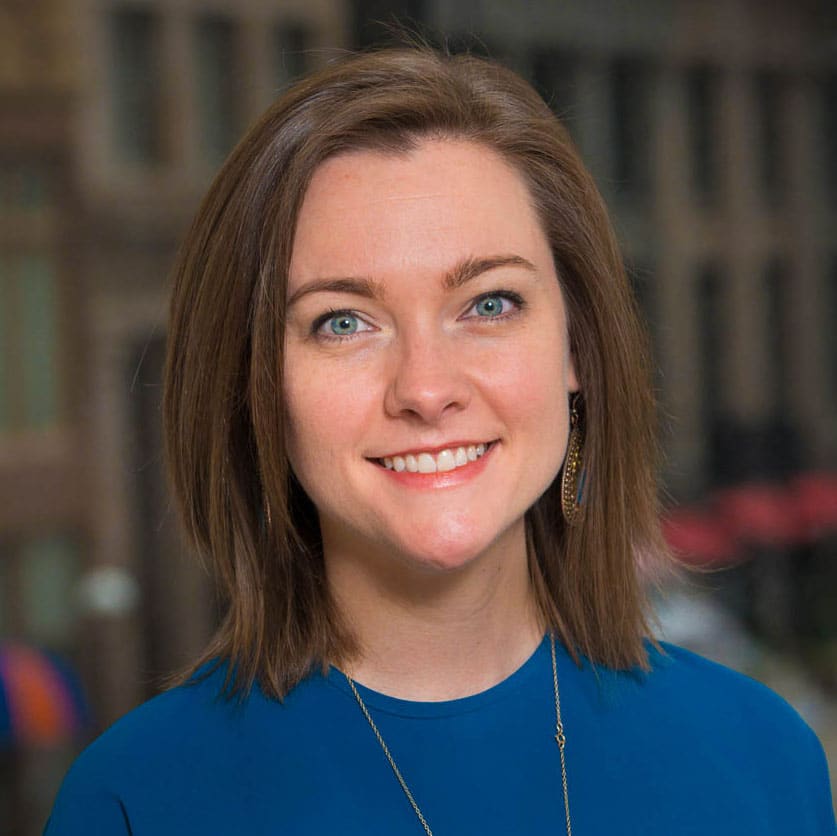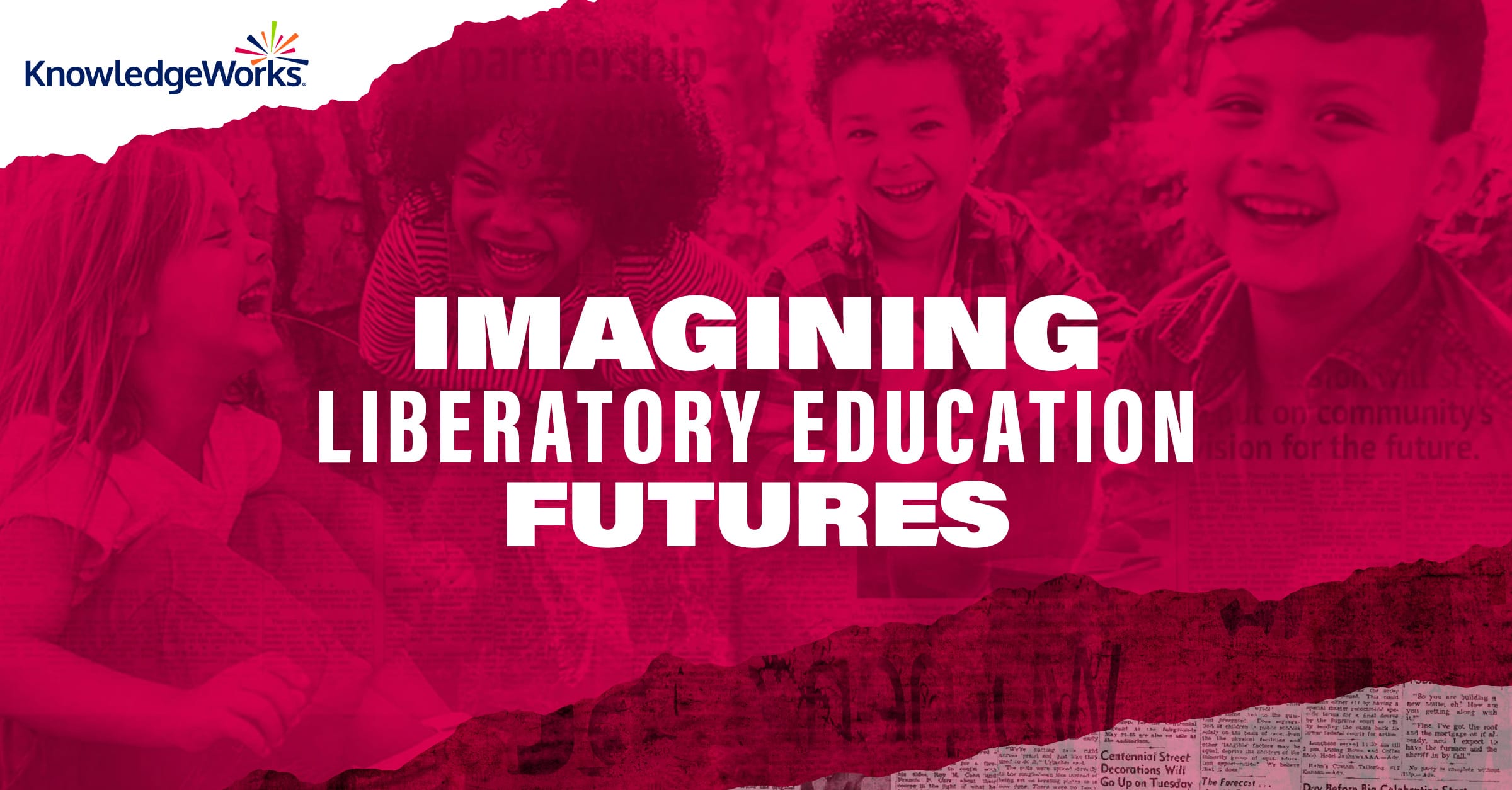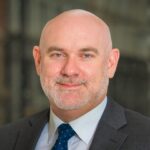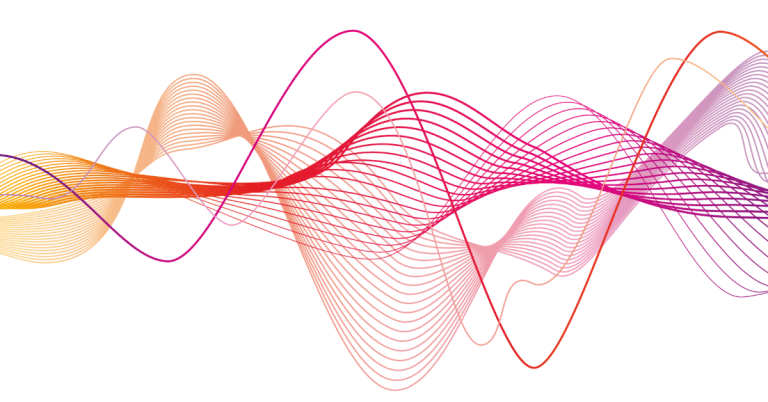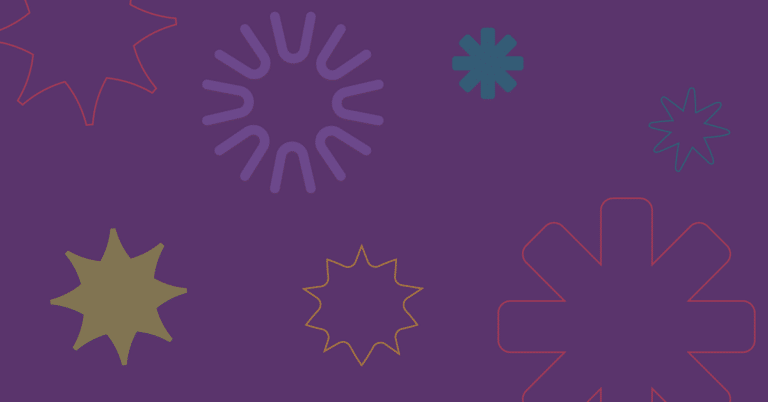When we think about the future, we tend to focus on what we want or what we fear. But exercising a futures mindset involves regularly asking ourselves three distinct questions:
- What do I expect to happen?
- What do I want to happen?
- What else might happen instead?
Most of us are asking and answering the first two questions all the time (sometimes without realizing it!). A key feature of futures thinking is pushing ourselves to ask the third question, to explore future possibilities beyond the expected future and our own aspirations. Doing so helps us make more informed decisions and pressure test our visions for the future.
KnowledgeWorks’ Imagining Liberatory Education Futures forecast described four scenarios showing different ways the future of learning might turn out. In our recent Mapping Your Journey Toward Liberatory Education Futures toolkit, we remixed those scenarios, turning them into short vignettes that could be quickly read and discussed by people who want to take action toward making education systems more life-affirming and equitable.
Example scenarios and processing questions
Below are a sampling of those vignettes and a few processing questions. If these vignettes are interesting to you and help you think of possibilities for the future that you had not yet imagined, download the toolkit and bring these conversations to your setting and colleagues.
These stories are inspired by longer scenarios from Imagining Liberatory Education Futures and are set 20 years in the future. They illustrate what success for one student could look like, given the different ways the future could turn out. The student is Raquel Luschoe (she/her), a Black Indigenous adolescent.
Scenario A: Education Liberation Commons Grow at the Speed of Trust
Raquel has begun her three-year term on her community’s educational council with other youth, educators, community members and experts in health and governance. She and her peers have completed an action research project on sustainable forest fire and farming practices, alongside tribal and Black food sovereignty leaders. The council is reviewing the overall curriculum and is using that project as a case study. Members of the council disagree as they discuss how to change the curriculum, but they process conflict without eroding trust, as do most people in this multi-generational and multi-racial learning community. People’s basic needs are met, so they have time to work together to meet their collective goals for the community. Raquel feels connected to and cared for by her neighbors, even those who are very different from her. She knows – from official measures and her own sense of growth – how much she is learning through projects and through the ways in which the community interacts and solves problems together.
- What aspects of this scenario align with your expectations for the future of learning? What aspects differ from what you expect to happen?
- Given this student’s experiences, what challenges and bright spots do you notice or can you infer? What might help make learning more life-affirming and equitable, and what might get in the way of that?
- What does this scenario make you think about in relation to your work or your aspirations for the future?
Scenario D: Career Pathways Bypass Liberation
Raquel is a star student in her artificial intelligence and data management programming career pathway. She started it four years ago when she became interested in technology and decided that she wanted to build wealth for her extended family, who have been denied opportunities for generations. Companies know that diverse workforces are more innovative, so they are recruiting her and promising mentorship from other Black women in the field. Some friends are matching with jobs via an app, but Raquel won a scholarship for a human counselor who uses sophisticated dashboards to help Raquel develop her skills and find learning and work opportunities. She just tested out of a collaboration learning thread, which she pursued because predictive analytics showed that it was an area of growth for her and because other data showed that recent graduates were struggling with collaboration. Raquel is feeling supported and accomplished but often feels stressed, too. Fitting in is hard work, but she knows that it is worth it to be successful for herself and her family in the future.
- What aspects of this scenario align with your expectations for the future of learning? What aspects differ from what you expect to happen?
- Given this student’s experiences, what challenges and bright spots do you notice or can you infer? What might help make learning more life-affirming and equitable, and what might get in the way of that?
- What does this scenario make you think about in relation to your work or your aspirations for the future?
Moving from possibility to aspiration to action
In the full toolkit, you are invited to dive into the bright spots and challenges these stories raise and imply as a starting point for identifying a destination and mapping a path toward it. By first considering what we expect to happen and what might happen instead, we can create resilient aspirations that will hold up against the wide range of futures that might emerge. The future will always surprise us. But if we spend time considering the ways it might turn out, we have a better chance of influencing it.
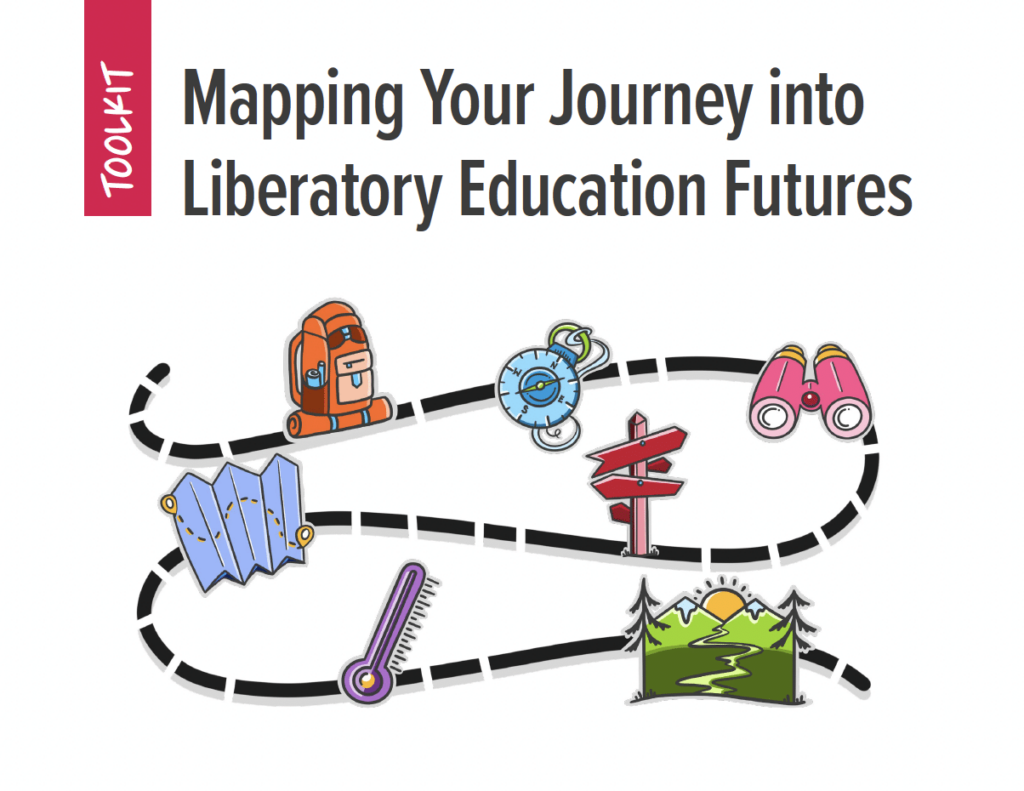
Use the toolkit to map out your path to liberatory education, whatever that means to your learning community.
